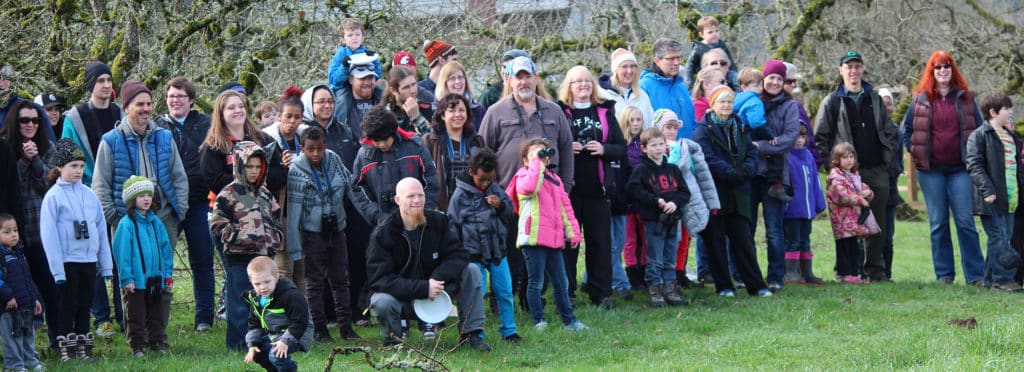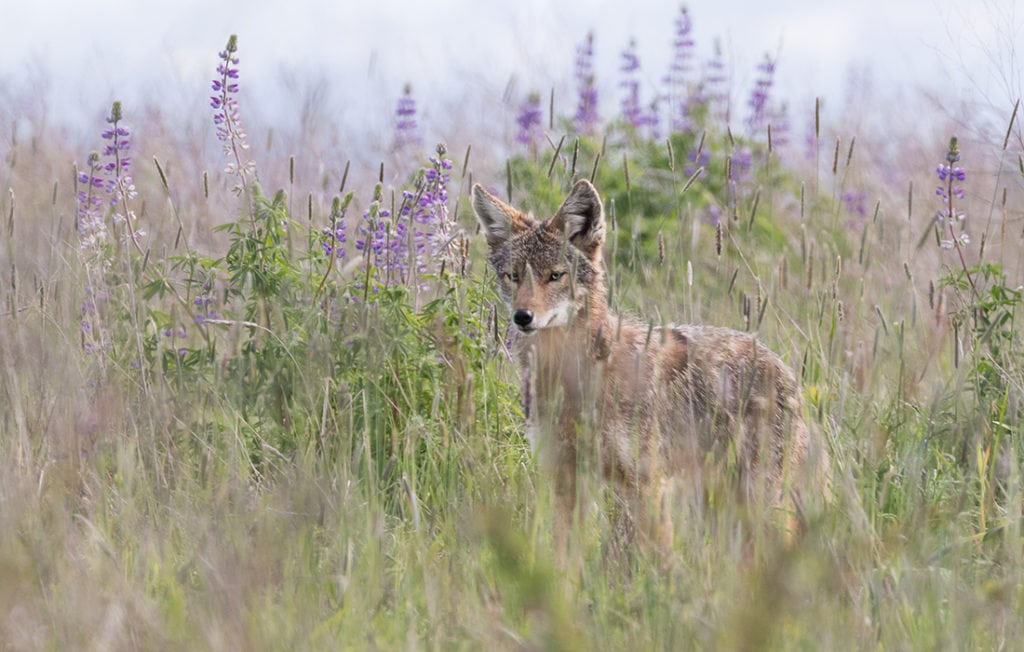
Thanks to Portland General Electric, we’ll be able to achieve our mission with a much lighter footprint. An average day of driving can include transporting injured and rehabilitated wildlife, sanctuary stewardship tools, and Backyard Habitat Certification Program supplies to and from our NW Portland campus. Because our work is statewide, we can also be found driving within the Portland metro area and throughout Oregon to meet with stakeholders for advocacy and education, engage communities through bird monitoring and habitat restoration, and lead outings that connect people to nature.
So why does this matter so much to Bird Alliance of Oregon? Climate change is happening now, and it’s threatening our planet’s biodiversity. With so much to love about nature, especially here in Oregon, we need to do what we can to reduce the effects of climate change on our native plants and animals while bolstering resilience. With further advancements to the energy supply that makes up Oregon’s electric grid, these electric vehicles will have a lower carbon footprint than a gas-powered vehicle. In addition, electric vehicles are generally more efficient at converting energy into power.
As we make the transition to additional clean-energy sources, we know critical work is still needed to ensure new projects avoid wildlife conflicts, protect frontline communities from environmental harm, and honor tribal sovereignty. This includes advising on placing solar panel farms to avoid encroaching on wildlife habitat, like sagebrush steppe that Greater Sage-Grouse rely on. It means advocating for a full environmental assessment by the Bureau of Ocean Energy Management before permitting offshore wind turbines to protect rich marine ecosystems up and down the West Coast. It also means supporting frontline communities at risk of environmental harm from mining of rare earth minerals. Transforming the electric grid is a pressing issue, and it needs to be done in a way that mitigates harm to people, wildlife, and the environment.
Building climate resilience has been a central focus of our work, and a clean-energy future is a vital step toward securing that. With transportation being the leading contributor to greenhouse gas emissions in Oregon, transitioning away from fossil fuels to clean energy is critical to reducing our impact. We are grateful for the opportunity to be a grantee in this effort to reduce transportation carbon emissions!
This project is made possible by DEQ’s Oregon Clean Fuels Program via the PGE Drive Change Fund.



